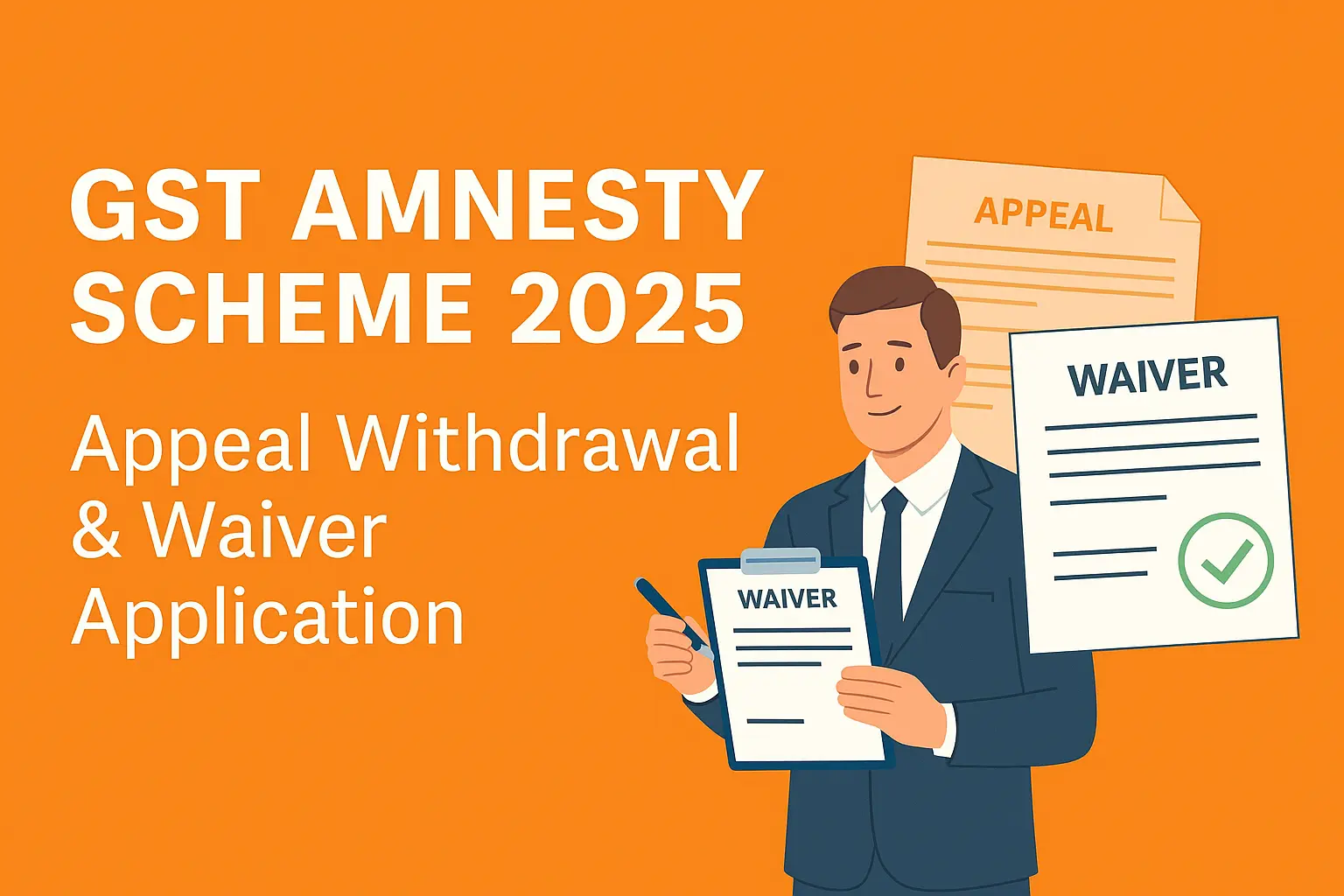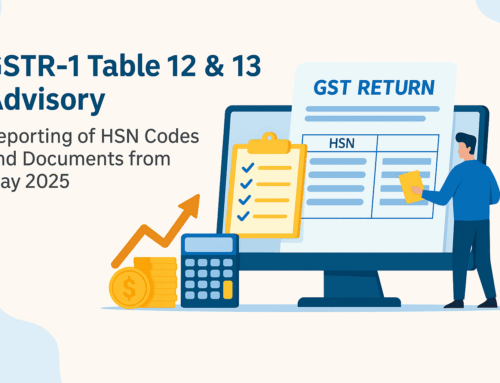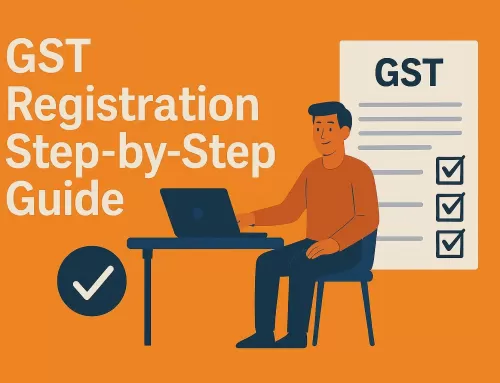Essential Guide: GST Appeal Process and Waivers 2025
The Goods and Services Tax (GST) Amnesty Scheme 2025, introduced under Section 128A of the Central Goods and Services Tax (CGST) Act, 2017, offers taxpayers an opportunity to regularize past non-compliances by waiving interest and penalties. A critical requirement to avail of this benefit is the withdrawal of any pending GST appeals. This guide provides an in-depth overview of the scheme, the appeal withdrawal process, and the steps to apply for the GST waiver scheme.
Understanding the GST Amnesty Scheme 2025
What is the GST Amnesty Scheme?
The GST Amnesty Scheme 2025 is a relief measure aimed at reducing litigation and facilitating compliance. It allows taxpayers to settle disputes by paying the outstanding tax dues while receiving a GST waiver on associated interest and penalties.
Eligibility Criteria
- Applicable Period: Disputes arising from July 1, 2017, to March 31, 2020.
- Nature of Cases: Non-fraudulent cases under Section 73 of the CGST Act.
- Payment Deadline: Full payment of the disputed tax amount by March 31, 2025.
- Application Deadline: Submission of GST waiver application by June 30, 2025.
- Appeal Status: No pending appeals; all appeals must be withdrawn before applying.
📑 GST Appeals : A Quick Overview
The appeals process in the Goods and Services Tax (GST) regime is governed by Chapter XVIII of the CGST Act, 2017. It provides a legal framework for taxpayers who wish to dispute assessments, orders, or notices issued by the GST authorities.
Key Provisions:
- First Appeal: Filed before the Appellate Authority using Form GST APL-01 within 3 months from the date of the order.
- Acknowledgment: Temporary acknowledgment (APL-01) is followed by final acknowledgment (APL-02).
- Withdrawal Option: Mandatory before availing amnesty benefits.
- Authority Review: If APL-02 is issued, the Appellate Authority must approve the withdrawal.
Withdrawing a GST Appeal: Step-by-Step Process
Steps to Withdraw an Appeal
- Log in to the GST portal: gst.gov.in
- Navigate to: Services > User Services > My Applications > Appeals
- Select the appeal you wish to withdraw
- Click “Withdraw Appeal” and complete details
- Submit the withdrawal request
Important Considerations
- Before APL-02: System auto-updates to “Appeal Withdrawn”
- After APL-02: Approval required from Appellate Authority
- Documentation: Take screenshot for use in waiver application
Applying for the GST Waiver: Form SPL-02
Application Process
- Gather payment proof and appeal withdrawal screenshot
- Log in to GST portal > Waiver Application
- Fill in Form GST SPL-02
- Upload required documents
- Submit before June 30, 2025
Frequently Asked Questions (FAQs)
1. What is the GST Amnesty Scheme 2025?
A relief initiative allowing taxpayers to settle disputes by paying due taxes while receiving a waiver on interest and penalties.
2. Who is eligible for the scheme?
Taxpayers with non-fraudulent disputes under Section 73 for the period July 1, 2017 – March 31, 2020, who pay full tax by March 31, 2025 and have withdrawn all pending gst appeals.
3. How do I withdraw a pending GST appeal?
Use the GST portal to submit Form APL-01W under the ‘Appeals’ section and track the status.
4. What documents are required for waiver?
Tax payment proof and a screenshot showing ‘Appeal Withdrawn’ status.
5. Can I apply for the waiver without withdrawing my gst appeal?
No. You must withdraw your appeal to qualify for the waiver scheme.
6. What is the last date to apply?
June 30, 2025. All compliance actions must be completed before this date.
Conclusion
The GST Amnesty Scheme 2025 presents a timely opportunity for businesses to resolve historical disputes. Withdraw your appeals and file SPL-02 before the deadline to benefit from interest and penalty waivers.
Suggested Reading
Get one month free trial of TaxPower GST Software Now!
Disclaimer:-
This blog is intended for informational purposes only and should not be considered legal or financial advice. Readers are encouraged to independently verify all applicable GST laws, regulations, CBIC advisories, GSTN guidelines, and E-Way Bill rules before making decisions. The author and publisher are not responsible for any actions taken based on the information provided here.






Leave A Comment